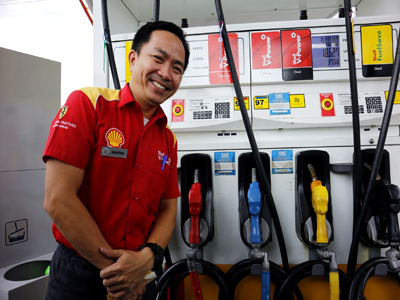
Doing due diligence when buying any type of business is extremely important. Regardless of what type of business you are buying there are certain things you will always look at such as, financials, equipment, legal issues etc. We take a look at several angles for optimal gas station due diligence.

Comments & Feedback From Pro Intermediaries & Pro Advisors On BizBen:

Doing your due diligence when buying any type of business is extremely important. Regardless of what type of business you are buying there are certain things you will always look at such as, financials, equipment, legal issues etc. However, certain business present a whole different and unique set of issues that need to be investigated. Gas stations with C-stores are one of these businesses that require you to do a little more research before you buy. For example; you are going to want to look into any environmental issues that may exist or that may present themselves in the future. Any environmental problems found after the sale will be your problem to deal with.
It pays to have an environmental survey done before making the purchase. You will also want to instigate a certified property survey or request to receive a copy of a recent certified property survey. Potential buyers must consider rent and pool margin on gas. If there is a car wash you'll need to inspect the age of the car wash equipment. Most car washes last about 10 years. Regarding the lease situation; if the land is owned by the oil company that's a plus; if a third party owns the land, check the underlying lease between the oil company and the landlord. You'll also want to check the transfer fee and security deposit charged by the oil company.
Take a close look at the financial records. A gas station owner that also has a convenience store, car wash or other amenities may claim that there are cash sales included in the store's total revenue or sales. Bottom line, if they can't prove it can't be added in to the value of the business. Insist on seeing at least the previous two years' worth of financial statements and have them checked by an accountant or CPA. Find out if the inventory included in the price of sale.
If you're buying a franchise keep in mind that you will probably be competing with the same brand. Find out how many other franchisees are in your area and determine if the market is already saturated. Another thing to consider if you choose to go the franchise route; as a franchisee you are obligated to purchase your gas and products from the franchise in contrast to an independent owner who can competitively source their products from available distributors. That leaves some room for price negotiation; however, most enter into long-term contracts with suppliers in order to take advantage of discounts.
I would like to hear from other ProIntermediaries and ProAdvisors on BizBen what thoughts they have on this topic - please contact me (the link is provided to my BizBen Profile page near my picture in this post) if you would like to contribute to this post or if you have a question regarding buying or selling small businesses you would like to get answers for. Thanks.